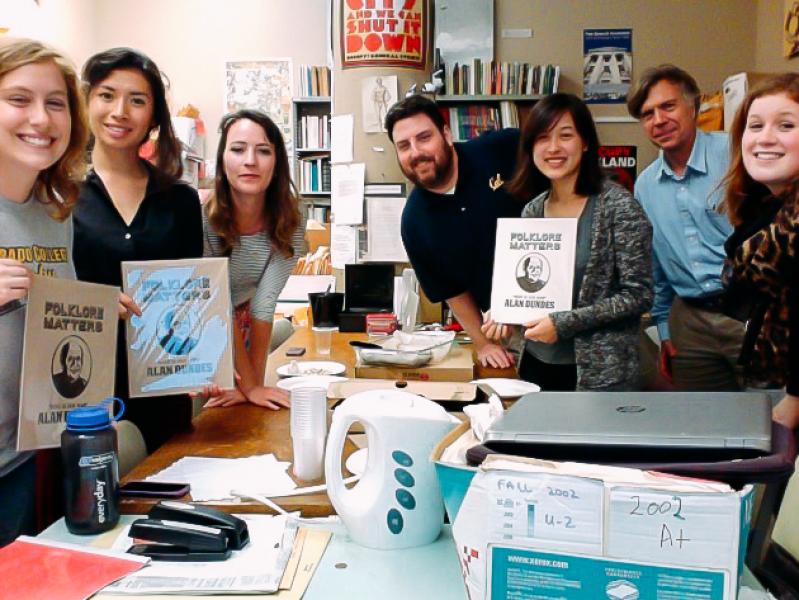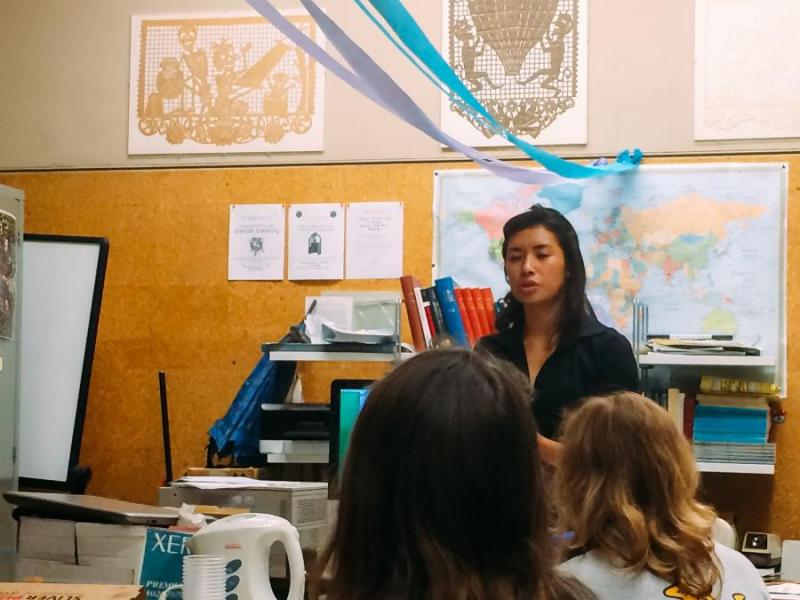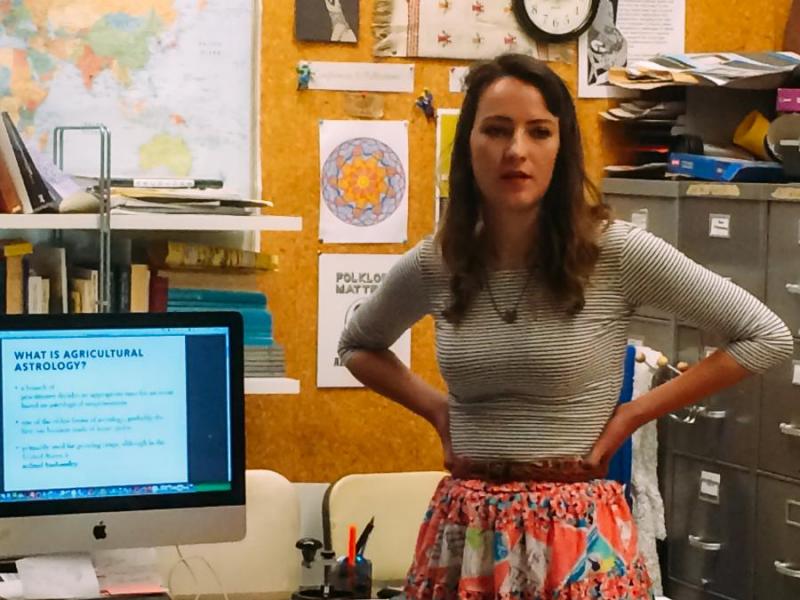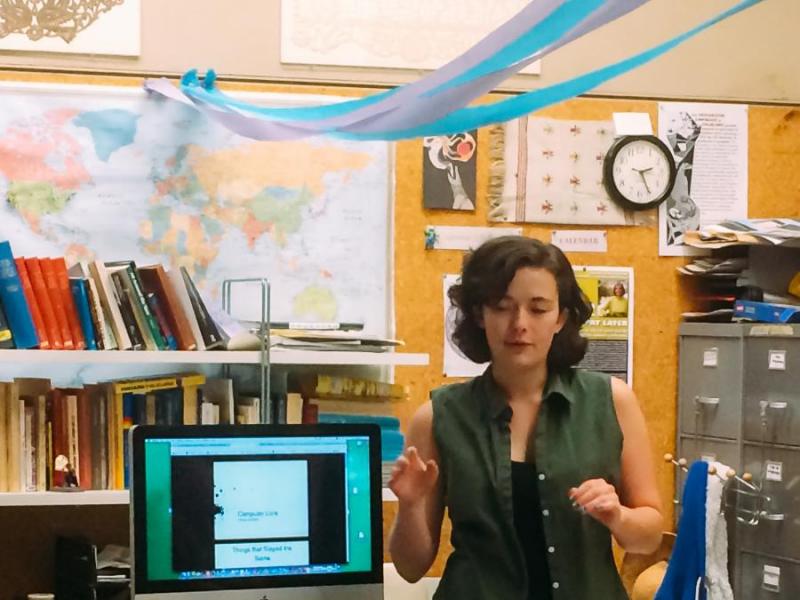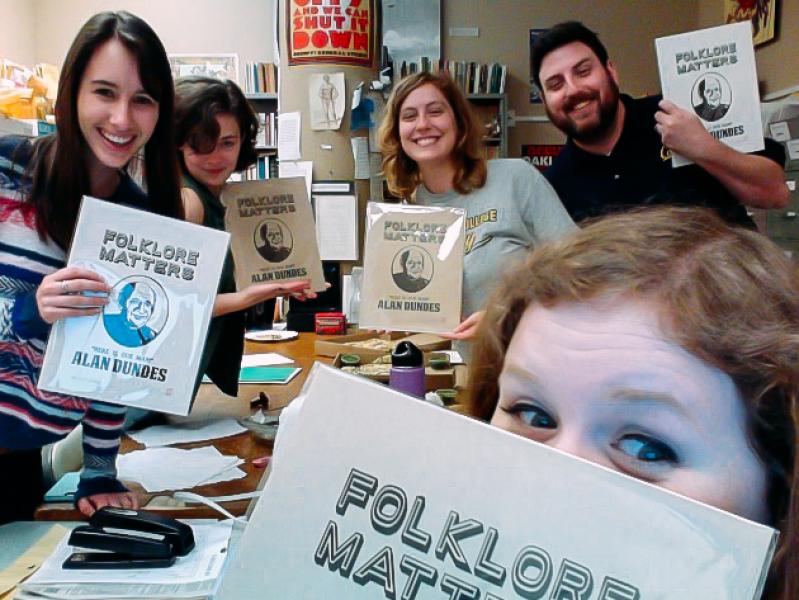M.A. in Folklore
Berkeley's internationally recognized Folklore MA Program offers students rigorous training in the discipline. Folklore, conceptualized as informal cultural expression circulating on and across social networks, emerges from the productive dialectic between an individual and the groups to which they belong. The study of folklore, folkloristics, enables interrogations of the complex relationships between "traditionality" and "modernity", the historical emergence of informal cultural expressive forms, the dynamics of their circulation(s) on and across social networks, and the importance of folklore and related concepts such as "tradition" and "heritage" in shaping political and social projects. The Program provides a solid grounding in folklore theories and methodologies through core courses and seminars, and offers students a chance to specialize in one of the many related areas in which Berkeley offers particularly strong training. Many students enter the M.A. Program to gain a broad and deep foundation prior to incorporating folkloristic perspectives in future doctoral training. Others see the degree as preparation for museum or cultural heritage site employment, while others use the training to complement work in cultural analytics and data science. Many take the M. A. as a chance to enhance their scholarly sophistication by exploring a range of topics and perspectives before deciding on a particular career path. Our goal is to train future leaders who will ensure the discipline’s future vibrancy and bring folkloristic perspectives to other disciplines.
Preparation for Graduate Study
Our students come from a broad range of humanities and social science backgrounds as well as from the natural sciences and other fields. They are drawn from universities in Africa, Asia, Europe, Latin America, and North America. Previous coursework in folkloristics is not required. All that is needed is a strong undergraduate record and the desire to excel. Preparatory study of a language pertinent to the proposed area of investigation is strongly recommended.Program Description
The M.A. in Folklore requires a minimum of 20 units of coursework, of which at least three four- unit courses must be graduate level, and an M.A. thesis based upon fieldwork or some other original, in-depth research project. During their first year of study, students take the core seminar, Folklore 262A-262B, Theories of Traditionality and Modernity. Students are also required to take Anthropology 160 AC, The Forms of Folklore, which provides an overview of folklore and folkloristics, if they have not already taken a course providing an overview of the field, or they may be advised to take a related Anthropology 298 with readings and exercises appropriate to graduate- level study. A graduate methodology course is also required for M.A. students, taken in an area relating to student's proposed thesis research.Advising
Upon entrance into the M.A. Program, the Chair and Faculty Graduate Advisor will work with the student to devise a program of study that provides depth in one of the areas in which Berkeley is particularly strong: these include critical theories of traditionalities and modernities; ethnomusicology and sound studies; medicine, science, healing, and the body; folk art and materiality; festival and religion; media and new media; gender and sexuality; race and coloniality; narrative and discourse analysis, and multi-species research. Students may also propose courses of study in other areas. The Chair and Faculty Graduate Advisor will also assist students in determining if Anthropology 160 AC should be taken, as well as developing a plan to fulfill the methodology and language requirements. Once an M.A. student has chosen a Thesis Committee, the Chair of that Committee will work with the student to ensure that all requirements have been fulfilled.Language Requirement
The student must demonstrate proficiency in reading at least one foreign language by the time he or she advances to candidacy which is normally at the end of the third semester. The language is selected in consultation with the Chair and/or Faculty Graduate Advisor; in most cases, it is the language most closely connected with the M.A. thesis. The language requirement is ordinarily satisfied by an examination in which students translate a passage from an academic text in their language of choice into English.M.A. Thesis
Theses are directed by a Thesis Committee consisting of at least three faculty members, two of whom belong to the Folklore Graduate Group. The Committee Chair must be a member of the Graduate Group; a co-chair from another department or program may be named when appropriate.Application and Financial Aid
The Graduate Division is encouraging online applications and lists guidelines and instructions at http://www.grad.berkeley.edu/prospective/index.shtml. Applicants are required to submit a writing sample. Submitting GRE scores is optional. Deadline for application for Fall 2024 are due December 11, 2023 at 8:59 pm Pacific Standard Time (PST). (We do not admit students for the Spring Semester.) The Folklore Graduate Program attempts to support students financially, often in the form of Graduate Student Researcher, Graduate Student Instructor, and Reader positions. Nevertheless, we cannot guarantee funding, and applicants are strongly encouraged to seek outside fellowship support. Inquiries may be directed to Tabea Mastel, Graduate Student Affairs Officer for the Folklore Program, tmastel@berkeley.edu, 510-642-3406.Selecting Folklore as a Second Graduate Major
Designated Emphasis
Curricular Requirements
Folklore 262A-262B, Theories of Traditionality and Modernity, is required. If students have not already taken a course providing an overview of the field, they are required to take Anthropology 160AC, The Forms of Folklore. As an alternative, depending on the student’s background, the student may take a related Anthropology 289 or other graduate directed readings course, with readings and exercises appropriate to graduate-level study. It is strongly recommended that students take at least one course in their home department that focuses on research techniques. Although the Designated Emphasis has no other formal course requirements, students are encouraged to take advantage of the areas in which Berkeley is particularly strong: these critical theories of traditionalities and modernities; ethnomusicology and sound studies; medicine, science, healing, and the body; folk art and materiality; festival and religion; media and new media; gender and sexuality; race and coloniality; narrative and discourse analysis, and multi-species research. Students may also propose courses of study in other areas. No elective courses are required.Examination and Dissertation Requirements
The student’s qualifying examination committee and dissertation committee must have one member (either inside or outside) of the DE’s designated faculty to represent the DE in Folklore. Both the material covered in the qualifying examination and the dissertation should including scholarship related to folkloristics. On the “Application to the Qualifying Examination,” the student must indicate which member of his or her QE committee is also a member of the DE faculty and is representing Folklore; the application must be signed by both the head faculty graduate advisor of the student’s home department and the faculty graduate advisor for the DE in Folklore. On the “Advancement to Candidacy” petition, the student must also indicate which member of the dissertation committee is a member of the DE faculty and is representing Folklore. This form must be signed by both the head faculty graduate advisor of the student’s major and the faculty graduate advisor for the DE in Folklore.Advising
Primary advising for DE students rests with the PhD advisor in the home department. Students should consult with the Folklore Chair or Faculty Graduate Advisor to ensure that all requirements for the DE are fulfilled.Undergraduate Research
You can receive one credit (P/NP) for three hours of work in the archives per week, or you can take more credits! To find out more, contact the URAP office (301 Campbell Hall), or stop by the Archive for a chat.
